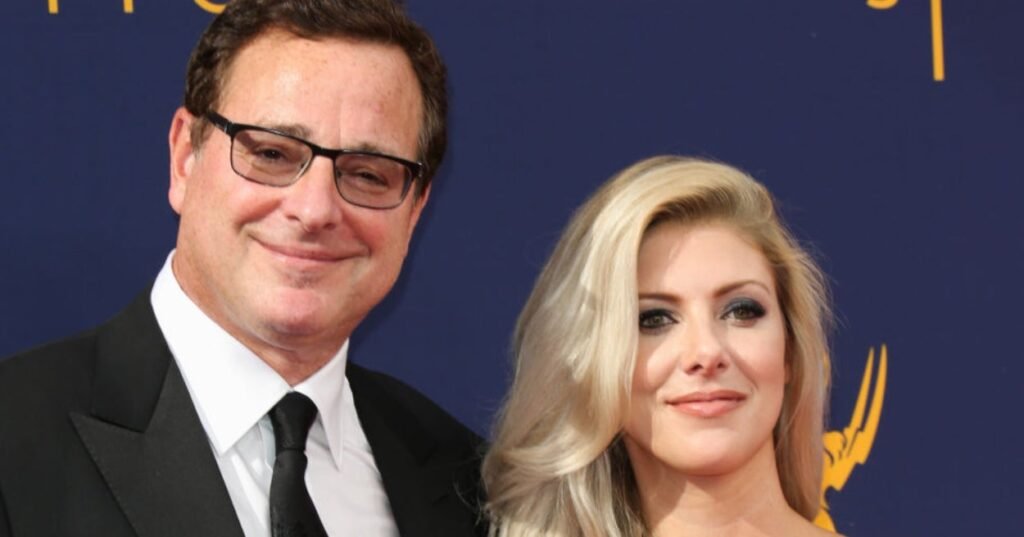[ad_1]
Specialists say there actually isn’t any correct timetable for relationship after the lack of a accomplice; the readiness issue varies considerably from individual to individual. For each one that’s wanting to date once more, there’s one other who feels fully squeamish about reentering the world of “swipe left” or “swipe proper.”
However the antiquated thought {that a} bereaved lady wants to watch a proper mourning interval has fierce sticking energy, stated Diane Brennan, a licensed psychological well being counselor in New York Metropolis who facilitates group remedy periods for widows ages 25 to 40.
“I attempt to put together my purchasers for the potential of others making feedback,” she informed HuffPost. “We work on how one can greatest reply when others move judgment, whether or not they suppose it is best to ‘decelerate’ or say ‘don’t fear, you’ll discover another person!’”
Nonetheless, it’s onerous to push again on the judgment that’s positioned on them.
“Truthfully, it causes extra ache for the griever,” Brennan stated. “I want that folks understood that once they provide their commentary.”
All too usually, persons are responding to what they suppose they may do in an identical scenario, stated Allen Klein, creator of Embracing Life After Loss: A Gentle Guide for Growing Through Grief.
“Somebody may say, ‘Oh, I’d by no means date so quickly after my partner died,’” he stated. “In actuality, nobody actually is aware of how they’d react till the scenario really occurs.”
The truth that widows and widowers date sooner than some anticipate is “no disrespect” to their former companions, Klein stated. “It’s only a manner [some] take care of the loss. As Kloots said on her talk show, getting out and assembly so many ‘fantastic individuals’ has been useful.”
Somebody’s readiness to like once more might in some methods be a testomony to the standard of their marriage, wrote Kerry Phillips, a widow at 32, in her on-line weblog known as Younger, Widowed and Relationship.
“We all know the wonder that radiates from a pair in love and what companionship and dedication appears to be like and seems like,” she wrote.
Trendy-day widows come up in opposition to outdated expectations.
Kate O’Neill, a a technique marketing consultant and the creator of 2015 memoir Surviving Death, misplaced her husband of 9 years, Karsten, by suicide in 2012. She was 38 on the time. Whereas these near O’Neill have been supportive of her option to date once more, some acquaintances felt in a different way.
“Individuals who have been extra informal pals had a tougher time, particularly in the event that they’d recognized me and Karsten socially as a pair,” O’Neill informed HuffPost.
However O’Neill desperately needed to fulfill new women and men, if solely simply to snort once more. (“Have to be humorous” was just about a prerequisite for a primary date candidate.)
“To me, nothing about selecting so far was in any manner a detrimental reflection on how a lot Karsten meant to me or how profoundly I had been affected by his loss,” she stated.
“My intense grief went on in parallel with my intuition to maintain myself intact and afloat by making an attempt to have moments of pleasure and that means in my life.”
She’s sure those self same judgy acquaintances in her life would have felt in a different way about her determination had she been a man.
“Among the attitudes in the direction of widowed girls relationship really feel archaic, as if by definition a girl who has misplaced her husband has additionally misplaced her personal function and standing in society,” she stated.
As an illustration, proper after Karsten’s loss of life, O’Neill was gifted an outdated Seventies-era ebook a good friend had present in a secondhand retailer about widowed girls, written by a widow.
“As I learn it, I keep in mind feeling stunned by the refined implications of embarrassment, worry and uselessness that even the creator herself appeared to precise, apparently with out overtly that means to,” O’Neill stated.
As a comparatively younger widow and a busy entrepreneur, O’Neill was in a unique boat socially, financially and psychologically.
“Dropping your beloved and your social ties and your financial safety and the shut companionship you hoped you’d have for the remainder of your life is one thing else fully,” O’Neill stated.
That’s “heartbreaks on prime of heartbreak,” she stated, however not essentially reflective of the experiences of many modern-day widows.
The expectation to go gradual additionally reductions an essential emotional issue: Many widows are grappling with having been a caretaker to their partner for years and years earlier than the loss. Some have grieved prematurely and are longing for companionship.
That was the case for Connie, a former flight attendant from Illinois, who joined Match.com about six months after her husband of twenty-two years died of most cancers in January 2017.
“Women and men who’ve misplaced a partner are sometimes desperately lonely and craving affection,” she stated. “Some in my household judged me, however you’ve gotten to bear in mind, whereas a partner is ailing there isn’t any intimacy.”
[ad_2]
Source link
